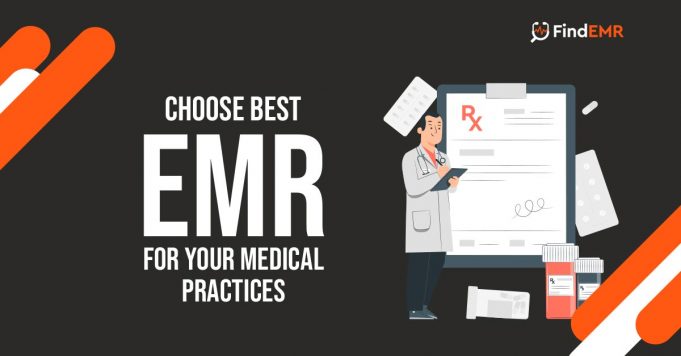If you’re looking for EMR software that will help your healthcare organization track patient data, you’ve come to the right place. We’ll look at how Epic EMR software can help you manage your patient records. We’ll also cover the Reporting Workbench, Rover, and Radiant modules. And we’ll touch on how these modules integrate with third-party systems.
Reporting Workbench
The Epiccare reporting workbench (EWR) is a data exploration tool that provides access to real-time operational data. It can be used to build and run reports on batch communications, recalls, reminders, and other patient-related data. It can also be integrated with other business object products such as SAP and Crystal Reports. The RWB is flexible, and administrators can create their own custom reports or use pre-built templates.
The reporting workbench is an Epic application that enables users to create, run, and share reports. The application includes reports based on data from other Epic systems, such as flowsheets and Clarity. This software stores data in relational databases, and provides an enterprise data warehouse for analysis. The software also includes an endoscopy reporting module called Lumens. These reports enable users to view endoscopy images and view patient information.
Rover
The Epiccare eMR software for Rover is a mobile device that allows authorized clinical users to view their patient’s medical records on the go. The application provides easy access to vital signs, current medications, allergies, and labs. It can also record intake/output and administration details. Using the app in the field can help clinicians increase compliance and reduce medication errors.
The software is compatible with a variety of mobile devices, including iPhone, Droid, and iPad. Users can securely access patient charts and generate reports for inpatient encounters while on the go. It also allows for quick review workflows.
Radiant
Radiant Epiccare EHR software provides clinical data management and access to patient medical records. Its MyChart patient portal helps physicians and patients access their records, schedule appointments, and submit medical questions. The software also includes mobile apps for physicians and patients. In the future, it may even allow physicians and patients to conduct video chats. It also has an operating room management system, OpTime, which streamlines day surgery for providers. Additionally, it comes with Prelude, which helps clinicians track patient status.
Radiant EpicCare EMR has been around for over two years and is a clear step ahead of its competition. Its design simplifies everyday tasks for healthcare staff and patients, including order entry, medication reconciliation, appointment scheduling, and medical history organization.
Integration with third-party systems
Integrating Epic EHR software with third-party systems is a crucial feature for improving the management and operational experience of healthcare facilities. Its integrated features allow hospitals and physicians to easily add and store patient records, which can significantly enhance patient care. Several integrations are available for this cloud-based EHR solution, which can be configured to meet the needs of different specialties.
Epic has become a leader in seamless EHR interoperability. Its system can be integrated with any customer website and allow patients to make appointments online, access test results, file prescription refills, and host Telemedicine sessions. Additionally, Epic integrates with One Clarity, which connects Epic to inventory management systems. Custom developers can also build applications to integrate with Epic.
Pricing
The cost of an Epic EMR system depends on a number of factors, including the number of users and the features chosen. There are also customization costs to factor in. The software can range from as little as $200 per month to as much as $35,000 per month, including installation and training. If your clinic is large, you may need to shell out tens of thousands of dollars.
Among the benefits of Epic EMR software are its comprehensive capabilities, which make it an excellent choice for any healthcare organization. It offers a wide range of functions, from order setting to medication reconciliation and appointment scheduling to patient education materials. Additionally, the software streamlines workflows, allowing physicians to focus on their patients rather than on documentation and reporting.
AltaPoint EMR Software Review
When it comes to EMR software, Altapoint is one of the more affordable options. Pricing starts at $29 per provider per month and includes all costs associated with training and customization. There are also monthly updates and support service fees. The ITQlick pricing score for Altapoint is three out of 10.
AltaPoint’s EHR software combines Practice Management (PM) software with an EMR system. Its built-in HL7 interface makes it compatible with nearly all EMR systems on the market. In addition, it can be easily integrated with Practice Fusion and Amazing Charts, two of the more popular EMR software systems.
AltaPoint is an EHR vendor that specializes in helping medical organizations transition from paper to electronic. The company’s products address office inefficiency while fostering better patient care. Its software is widely used throughout the United States and has products for every specialty. The company provides adequate customer support and works with foreign organizations to help them make the transition to electronic records.
AltaPoint is CMS-1500 and ICD-10 compliant and can be implemented on-premise or in the cloud. Its built-in H7 interface makes it easy to connect to third-party EHRs. It also includes advanced claims management, authorization tracking, appointment scheduling, and patient profile management. The software also has a practice spotlight feature that gives physicians a quick view of critical practice statistics.












